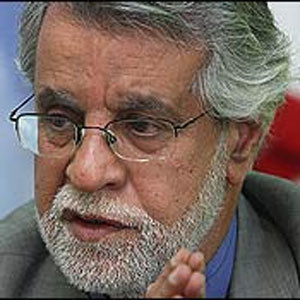Damascus Meeting: Diplomacy Revisited

A four-way meeting was held in Damascus on September 5th attended by presidents of Syria and France, the emir of Qatar and the prime minister of Turkey. The Syrian president reiterated the peaceful nature of Iran’s nuclear program at the Damascus meeting.
Addressing a joint press conference in the presence of heads of Syria, Qatar and Turkey in Damascus on the same occasion, French President Nicolas Sarkozy stated: “The question is not whether it would be legitimate, whether (an Israeli attack on Iran) would be intelligent. What will we do at that moment? It would be a catastrophe. We must avoid that catastrophe.” Sarkozy’ remarks prompted some reactions from Iranian officials. In Sarkozy’s opinion, Iran was taking “a big risk” by its nuclear program, saying that one day it could find Israel had decided to attack.
Note Verbale: Mohammad Ali Mohtadi, University Instructor & Middle East Affairs Expert
In Nicolas Sarkozy’s statement no mention is made of a certain Israeli attack on Iran. He has urged Syria which has good relations with Iran, to try to persuade Tehran not to pursue seeking a nuclear weapon because otherwise this could spark an Israeli attack. The statement made by Sarkozy precisely explains his concern. He has said: “One day, whatever the Israeli government, we could find one morning that Israel has struck.” He has also said the catastrophe must be avoided.
The French president went to Damascus to follow up three issues: the developments in Lebanon, peace between Israel and Syria and Iran’s nuclear issue within the framework of bilateral talks with Syria. Concerning Iran’s nuclear issue, unlike the past when the West used the language of force and intimidation against Tehran, this time it has resorted to mediation of a country which a friend and ally of IRI to solve the problem. The Syrian response, however, is clear: Iran’s nuclear program is peaceful and not intended for military purposes. Syria also raised a wider scale, namely the question of nuclear disarmament in the Middle East with particular emphasis on Israel.
In this way, Syria intends to make the West understand that if it is genuinely concerned about nuclear weapons in the Middle East it should first disarm Israel rather than putting pressure on Iran and object to its peaceful case time and again.
Similar stances were voiced by other participants in the Damascus meeting. The emir of Qatar and the prime minister of Turkey reiterated that the regional issues must be resolved through dialogue and negotiations. They also stressed that the title chosen for the quadrilateral meeting was “stability in the region.”
After the US plans in the Middle East over the past five years produced various crises, destructions, war, terrorism and instability, Washington has now lost its regional status and its policies have proved a total failure. Now that on the eve of the US presidential elections, the Bush administration is unable to take any initiatives, a golden opportunity has been provided to some regional countries plus France to get together and focus their talks on diplomacy.
Therefore, an Israeli attack on Iran was not an issue in the Damascus meeting or in the remarks made by Sarkozy. Instead, the emphasis has been to find diplomatic solutions to the regional crises.
The emir of Qatar as the rotating chairman of the Persian Gulf Cooperation Council stressed that the Persian Gulf states would not tolerate the outbreak of another war in the region under any circumstances. The Syrian president, the Turkish prime minister and the person of Sarkozy all emphasized that from now on all the regional issues require diplomatic solutions.
A problem Israel is now facing is that with the new difficulties created for the US in the Caucasus, the appropriate conditions provided to Tel Aviv in Georgia for a possible attack on Iran do not exist any more. According to new arrangements, from now on, with the defeat and setback of America, other players would move things forward through diplomacy.

